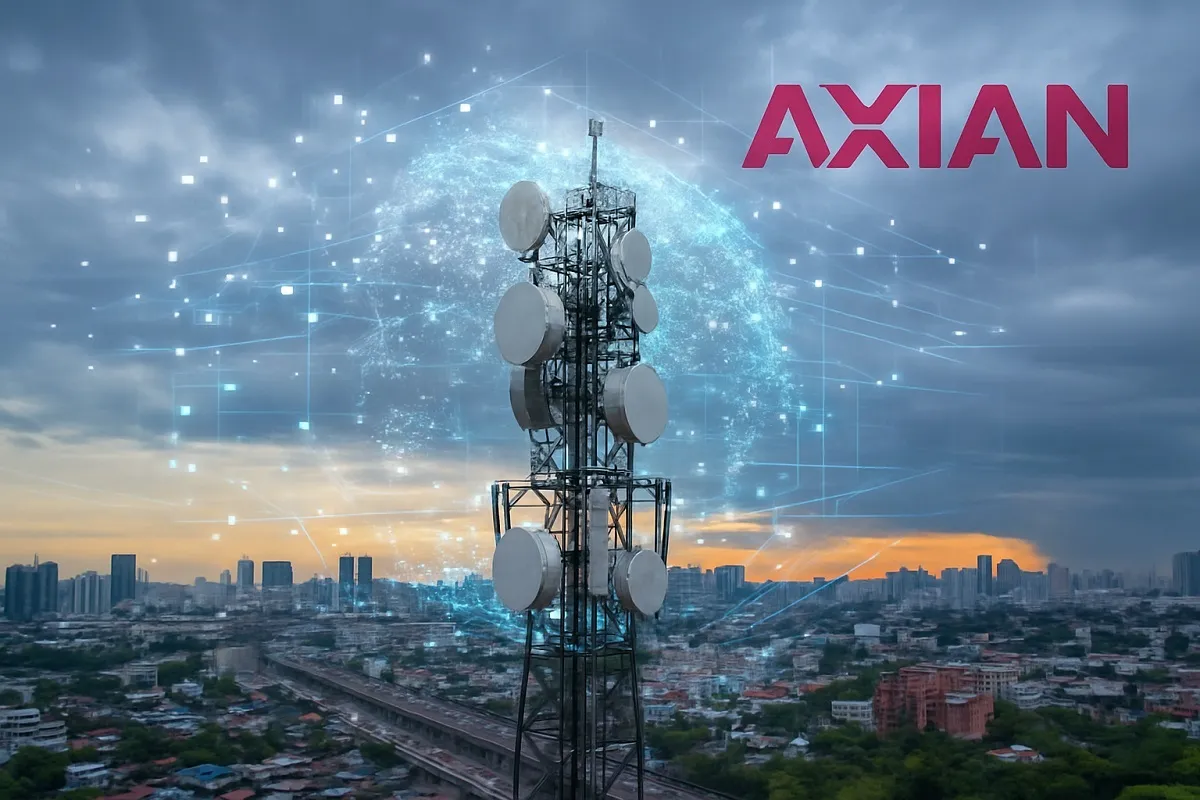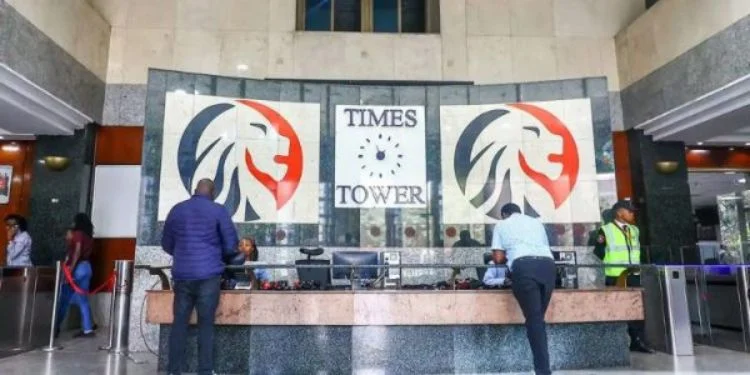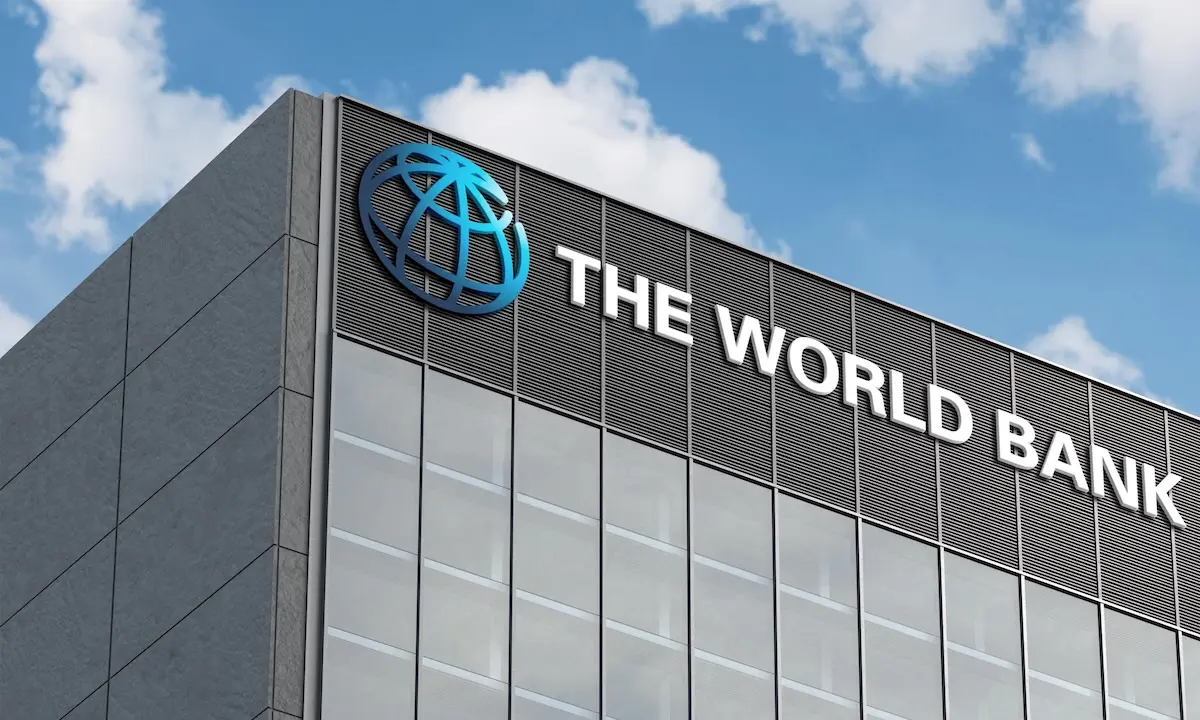The International Finance Corporation (IFC), the private sector investment arm of the World Bank Group, has committed a comprehensive $62.5 million financing package to support AXIAN Telecom‘s proposed acquisition of Wananchi Group, the East African telecommunications company behind the well-known Zuku brand. The transaction represents a significant consolidation move in East Africa’s competitive broadband and pay-television markets, bringing together one of Africa’s fastest-growing pan-African telecom operators with an established regional player facing strategic challenges.
Build the future you deserve. Get started with our top-tier Online courses: ACCA, HESI A2, ATI TEAS 7, HESI EXIT, NCLEX-RN, NCLEX-PN, and Financial Literacy. Let Serrari Ed guide your path to success. Enroll today.
Financing Structure and Deal Architecture
The $62.5 million IFC commitment comprises two components designed to provide AXIAN with the financial flexibility needed to complete this transformative acquisition. According to disclosures reviewed by Business Daily Africa, IFC will invest $25 million from its own account as an anchor investor, while mobilizing an additional $37.5 million from partner lending institutions. This structure demonstrates IFC’s confidence in both AXIAN’s strategic vision and the growth potential of East Africa’s broadband infrastructure sector.
The financing forms part of a larger capital-raising effort by AXIAN Telecom. The company has announced plans to issue a substantial $550 million bond, with IFC expected to anchor a $75 million portion of that issuance. The bond proceeds will serve multiple corporate purposes: refinancing existing debt obligations, providing acquisition capital for the Wananchi purchase, and supporting general corporate uses including ongoing infrastructure expansion across AXIAN’s pan-African footprint.
This multi-layered financing approach reflects the sophisticated capital structures increasingly common in African telecommunications transactions. By combining direct acquisition financing with broader corporate refinancing, AXIAN positions itself to complete the Wananchi deal while maintaining financial flexibility for future growth initiatives across its nine operating markets.
AXIAN Telecom: Africa’s Rising Telecommunications Power
AXIAN Telecom, led by Malagasy businessman Hassanein Hiridjee, has emerged as one of Africa’s most dynamic telecommunications operators through a deliberate strategy of organic growth combined with strategic acquisitions. Founded in 2003 and headquartered in Mauritius, the company has expanded from its initial Madagascar base to become the continent’s sixth-largest mobile operator by subscriber count.
As of recent disclosures, AXIAN serves more than 42.9 million mobile subscribers across its footprint, positioning it alongside continental giants in terms of scale. Beyond traditional mobile voice services, the company has built substantial positions in data connectivity and mobile financial services, with approximately 15.2 million users accessing mobile money and other financial products through AXIAN’s platforms. This diversification into mobile financial services—operating under brands including Yas Mobile and Mixx by Yas—reflects the company’s recognition that Africa’s digital transformation extends far beyond basic connectivity into financial inclusion and digital commerce.
AXIAN’s current operational footprint spans nine African countries: Tanzania, Madagascar, Togo, Uganda, Senegal, the Comoros, Réunion, Mayotte, and the Democratic Republic of Congo. This geographic diversity provides natural hedges against country-specific risks while exposing the company to some of Africa’s fastest-growing telecommunications markets. Tanzania, where AXIAN operates Tigo Tanzania and Zantel following its 2021 acquisition of these assets from Millicom International Cellular, represents one of the company’s largest markets and a key growth driver.
The company’s financial performance reflects this expansion trajectory. Revenue increased from $1.08 billion to $1.4 billion in recent financial periods, driven primarily by surging demand for 4G and 5G mobile broadband services across its markets. In the nine months ending September 30, 2024, the company reported revenue of $1.03 billion, representing a robust 34.57 percent increase compared to $762.83 million in the corresponding prior-year period.
Under Hiridjee’s leadership, AXIAN has pursued an aggressive capital-raising strategy to fund its expansion ambitions. In January 2025, the company secured a $160 million financing package from the African Development Bank specifically earmarked for digital transformation and financial inclusion initiatives across its nine operating countries. Three months later, in April 2025, AXIAN obtained an additional $100 million from EIB Global, the development arm of the European Investment Bank, to accelerate 4G and 5G broadband rollout in Madagascar and Tanzania.
Most recently, in June 2025, AXIAN successfully raised $600 million through an oversubscribed international bond offering priced at 7.25 percent. The overwhelming investor response to this bond—with the order book significantly oversubscribed at closing—signals strong market confidence in AXIAN’s business model and Africa’s telecommunications sector more broadly. Approximately half of the bond investors came from the United States, demonstrating AXIAN’s ability to access deep international capital markets.
Wananchi Group: Pioneer Facing Modern Challenges
The acquisition target, Wananchi Group, carries a distinguished history as one of East Africa’s telecommunications pioneers. The company traces its origins to 1998 when it was founded as Wananchi Online by former ICT Cabinet Secretary Joe Mucheru and the late entrepreneur Njeri Rionge. The name “Wananchi”—Swahili for “common people” or “ordinary citizens”—reflected the founders’ mission to democratize internet access in Kenya at a time when connectivity remained the preserve of corporations and affluent individuals.
Wananchi Online began operations in March 2002 with an aggressive pricing strategy that included discounts of 85 to 90 percent compared to prevailing market rates. This disruptive approach quickly established the company as Kenya’s leading internet service provider, serving corporate clients, small and medium enterprises, and individual consumers. By December 2005, Wananchi Online had become the dominant ISP in Kenya’s nascent internet market.
The company’s success attracted significant international investment interest. In 2008, Wananchi Online transformed into Wananchi Group following multiple fundraising rounds that brought in sophisticated institutional investors including Liberty Global, Emerging Capital Partners, Export Development Canada, Altice, and Prudence Holdings. This capital injection enabled aggressive regional expansion beyond Kenya into Uganda, Tanzania, Mauritius, Malawi, Zambia, Rwanda, Burundi, Ethiopia, Somalia, and South Sudan.
The company’s flagship consumer brand, Zuku, offers a triple-play service bundle combining pay television, fixed broadband internet, and voice-over-IP telephony to residential customers across East Africa. For corporate clients, Wananchi operates under the Simbanet brand, providing dedicated fiber connectivity, data center services, and managed communications solutions.
At its peak, Zuku commanded an impressive 49 percent market share in Kenya’s fixed wireless internet segment. However, the past decade has witnessed a steady erosion of this dominant position due to multiple factors including intensifying competition, shareholder conflicts that hampered investment and product development, and operational challenges that damaged the brand’s reputation among consumers.
According to data from Kenya’s Communications Authority, Zuku’s market share in the fixed data segment had declined to 18.8 percent as of March 2024. With a subscriber base of 262,753, the company ranks third in Kenya’s fixed broadband market behind Safaricom—which has surged to 37.4 percent market share with 522,217 subscribers—and Jamii Telecom. In Uganda, Wananchi maintains an estimated 10 to 15 percent market share in both internet provision and pay-television services. In Malawi, where the company operates as Simbanet, it holds between 10 and 15 percent market share.
Wananchi’s decline stemmed from multiple interconnected challenges. Shareholder disputes reached their zenith in 2018 when local shareholders filed legal complaints alleging fraud by rival shareholders totaling 20 billion Kenyan shillings (approximately $155 million). That same year, the Kenya Revenue Authority assessed Wananchi for 3.4 billion shillings in unpaid taxes, a claim that received backing from some shareholders who felt defrauded by the company’s management.
Financial stress forced significant ownership restructuring. In 2022, major creditors including Triple HoldCo Limited, Liberty Global Europe 2 Limited, and Altice Africa S.A.R.L converted their substantial loans to Wananchi into equity, collectively acquiring approximately 75 percent ownership and effectively taking control from the founding shareholders and earlier investors. This debt-to-equity conversion, approved by Kenya’s Competition Authority, diluted earlier investors while giving the new controlling shareholders both the burden and opportunity of steering Wananchi’s recovery.
One decision can change your entire career. Take that step with our Online courses in ACCA, HESI A2, ATI TEAS 7, HESI EXIT, NCLEX-RN, NCLEX-PN, and Financial Literacy. Join Serrari Ed and start building your brighter future today.
Strategic Rationale for the Acquisition
For AXIAN Telecom, the Wananchi acquisition presents multiple strategic advantages aligned with the company’s broader ambition to become a leading integrated telecommunications and digital services provider across Africa. Most immediately, the transaction provides AXIAN with an entry point into Kenya—East Africa’s largest economy and a critical telecommunications market—through an established brand with existing infrastructure and customer relationships.
While AXIAN maintains administrative offices in Kenya for business support functions, the company has not previously operated telecommunications services directly in the country. Acquiring Wananchi’s Zuku brand provides instant market presence and brand recognition, circumventing the substantial time and capital investment required to build operations from scratch in a highly competitive market already dominated by Safaricom and other established players.
The acquisition also deepens AXIAN’s presence in markets where it already operates. In Tanzania and Uganda, Wananchi’s fixed broadband and pay-television operations complement AXIAN’s existing mobile operations, creating opportunities for converged service offerings that bundle mobile, fixed broadband, and entertainment content. This convergence strategy reflects global telecommunications industry trends where operators increasingly seek to capture greater wallet share by providing comprehensive connectivity and content packages to both residential and business customers.
Hassan Jaber, CEO of AXIAN Telecom, articulated this vision in comments to The Africa Report, indicating that the company views the Wananchi acquisition as a stepping stone to further expansion into new African markets. “We want to enter new markets after Wananchi purchase,” Jaber stated, signaling that AXIAN’s growth strategy extends well beyond consolidating its current footprint.
The acquisition provides AXIAN with valuable fiber optic infrastructure assets across East Africa. Wananchi has invested heavily over the past fifteen years in building fiber-to-the-home networks in major urban centers and fiber backbone connecting cities. These physical infrastructure assets—which take years to deploy and require substantial capital investment—represent significant barriers to entry for new competitors and valuable strategic assets for AXIAN’s broadband expansion plans.
Capital efficiency considerations also favor the acquisition. Rather than duplicating infrastructure investment in markets where Wananchi already maintains networks, AXIAN can acquire existing assets at what appears to be a favorable valuation given Wananchi’s recent challenges. While the specific purchase price remains undisclosed, industry observers note that Wananchi’s market position and asset base would have commanded substantially higher valuations during the company’s peak years.
Regulatory Review and Transaction Conditions
The proposed acquisition remains subject to regulatory approval from multiple jurisdictions where Wananchi operates. The COMESA Competition Commission—the regional competition authority for the Common Market for Eastern and Southern Africa—has formally launched an inquiry into the transaction. COMESA’s review examines whether the merger would substantially lessen competition in telecommunications markets across its member states, which include Kenya, Uganda, Tanzania, Rwanda, Democratic Republic of Congo, and Malawi.
According to filings with COMESA, AXIAN Telecom Fibre Limited, a newly incorporated subsidiary of AXIAN Telecom, will acquire 99.63 percent of Wananchi Group (Holdings) Limited’s issued ordinary shares. The transaction structure leaves a small minority stake outstanding, though the identity of these minority shareholders and their strategic significance remains unclear from public filings.
As a condition precedent to completing the transaction, regulators have required Wananchi to divest its indirect majority shareholding in iSat Africa Limited, a satellite communications company incorporated in the United Arab Emirates with subsidiaries operating in Kenya and Zambia. This divestiture requirement likely reflects regulatory concerns about market concentration or strategic considerations regarding satellite services falling outside AXIAN’s core focus areas. The iSat Group will therefore not form part of the target assets that AXIAN acquires, simplifying the transaction structure while potentially providing Wananchi’s current shareholders with additional proceeds from selling this separate business unit.
Regulatory approval timelines for major telecommunications transactions in Africa typically range from three to twelve months depending on the complexity of competition issues, the number of jurisdictions involved, and the efficiency of regulatory processes. Given that this transaction spans multiple COMESA member states and involves significant market positions in several countries, observers expect a thorough but ultimately favorable regulatory review process.
Financing Partners and Development Finance Support
The IFC’s participation as anchor investor and mobilizer of additional lending reflects the institution’s strategic focus on Africa’s digital economy as outlined in the World Bank Group’s Digital Economy Initiative for Africa (DE4A). This initiative recognizes that expanding access to affordable, reliable broadband connectivity represents a critical enabler for economic growth, job creation, and poverty reduction across the continent.
IFC has positioned capital markets development as a key strategy for addressing Africa’s substantial infrastructure investment gap. The institution notes that capital markets provide more sustainable, local-currency financing alternatives compared to traditional bank lending or foreign currency debt that exposes African companies to exchange rate volatility. By participating in AXIAN’s bond issuance and providing direct acquisition financing, IFC helps deepen African capital markets while supporting a strategically important transaction.
This marks IFC’s latest in a series of investments in African telecommunications infrastructure. The institution previously participated in AXIAN’s maiden $420 million bond issuance in February 2022, committing $50 million (approximately 12 percent of the total issuance) as an anchor investor. That earlier bond, which was 2.2 times oversubscribed at closing, financed working capital needs, debt refinancing, and general corporate expenses supporting AXIAN’s growth during a period when the company was aggressively expanding its Tanzania operations.
IFC has also invested in parallel digital infrastructure initiatives across Africa. The institution recently participated in a bond issued by Liquid Intelligent Technologies, Africa’s largest independent provider of fiber networks, data centers, and cloud services. This pattern of supporting multiple telecommunications operators and infrastructure providers reflects IFC’s thesis that Africa’s connectivity gap requires investment across multiple technology platforms and business models rather than betting exclusively on any single approach or company.
Other development finance institutions have similarly backed AXIAN’s expansion trajectory. British International Investment (formerly CDC Group), Germany’s DEG, and France’s Proparco have all participated in previous AXIAN financing rounds, bringing not only capital but also technical expertise, environmental and social safeguards, and governance frameworks that enhance the company’s operational standards and attractiveness to commercial investors.
Market Context: East Africa’s Broadband Revolution
The AXIAN-Wananchi transaction unfolds against a backdrop of rapid transformation in East Africa’s telecommunications landscape. The region has witnessed explosive growth in mobile connectivity over the past decade, with smartphone penetration increasing dramatically and mobile data consumption surging as consumers embrace social media, video streaming, mobile banking, and e-commerce.
Kenya, the region’s economic powerhouse, has emerged as a continental leader in mobile money innovation following the spectacular success of Safaricom’s M-Pesa platform, which now processes billions of dollars in transactions monthly. This mobile money ecosystem has created secondary demand for data connectivity as consumers increasingly conduct financial transactions, access government services, and engage in e-commerce through their smartphones.
Fixed broadband penetration, while still relatively low compared to mobile connectivity, has been growing steadily as urban middle-class households seek reliable, high-speed internet for remote work, online education, and entertainment streaming. The COVID-19 pandemic accelerated this trend as lockdowns forced millions to work and study from home, exposing the inadequacies of mobile-only connectivity for bandwidth-intensive applications.
Competition in Kenya’s fixed broadband market has intensified significantly. Safaricom, traditionally a mobile-focused operator, has aggressively expanded its fiber-to-the-home footprint and now commands the largest fixed broadband customer base. Jamii Telecom, backed by local investment and a focus on underserved neighborhoods, has captured significant market share by offering competitively priced packages and localized customer service.
New competitive threats have also emerged. Starlink, the satellite broadband service operated by Elon Musk’s SpaceX, began offering services in Kenya and other East African markets, providing high-speed internet to remote and underserved areas where traditional fiber deployment proves economically challenging. While Starlink’s pricing positions it primarily toward premium customers and businesses, its presence puts additional pressure on traditional broadband providers to improve service quality and competitive positioning.
For AXIAN, acquiring Wananchi provides scale and infrastructure assets to compete effectively in this increasingly competitive environment. The combined entity will serve hundreds of thousands of fixed broadband customers across multiple East African markets, creating opportunities for operational efficiencies, network optimization, and enhanced bargaining power with content providers and international bandwidth suppliers.
Financial Inclusion and Mobile Money Integration
A particularly compelling dimension of the AXIAN-Wananchi combination involves potential integration between Wananchi’s broadband infrastructure and AXIAN’s extensive mobile financial services operations. AXIAN currently serves 15.2 million mobile money users through its Yas Mobile brand and related platforms, making it one of Africa’s significant mobile financial services providers outside of the East African giants like M-Pesa and MTN Mobile Money.
Mobile money has become foundational infrastructure in African economies, enabling millions of previously unbanked individuals to save money, send remittances, pay bills, and access credit. However, the user experience for mobile money transactions often depends critically on reliable data connectivity. Spotty mobile coverage or congested networks can result in failed transactions, delayed confirmations, and customer frustration.
By combining AXIAN’s mobile financial services expertise with Wananchi’s fixed broadband infrastructure, the merged entity could develop innovative products that leverage both platforms. For example, small and medium enterprises that require reliable connectivity for point-of-sale systems, inventory management, and digital payments could receive integrated packages combining fiber internet, mobile money merchant services, and business telephony.
Moreover, the combination positions AXIAN to explore synergies with its recent strategic investments in digital commerce. In June 2025, AXIAN acquired an 8 percent stake in Jumia Technologies, Africa’s leading e-commerce platform. This investment, valued at approximately $35 million and subsequently increased to 9.18 percent, signals AXIAN’s intention to participate in Africa’s digital commerce revolution beyond basic connectivity provision.
Speculation has emerged that AXIAN may pursue a full acquisition of Jumia, potentially transforming the e-commerce platform into a broader digital payments and commerce hub integrated with AXIAN’s telecommunications infrastructure. Hassan Jaber, AXIAN’s CEO, has publicly expressed support for Jumia’s vision, highlighting how the platform’s retail, logistics, and fintech capabilities contribute to financial inclusion objectives. AXIAN has indicated interest in potentially linking Jumia’s payment platform, JumiaPay, with its own mobile money products, creating an integrated ecosystem spanning connectivity, payments, and e-commerce.
Looking Ahead: Integration Challenges and Opportunities
Assuming regulatory approvals proceed smoothly, AXIAN will face the considerable challenge of integrating Wananchi’s operations while simultaneously addressing the operational and reputational issues that have plagued the company in recent years. Successful integration will require careful attention to multiple dimensions.
Network Infrastructure Modernization: Wananchi’s fiber and wireless infrastructure requires ongoing investment to remain competitive. AXIAN will need to accelerate deployment of higher-capacity fiber connections, upgrade customer premises equipment, and enhance network reliability to improve service quality and customer satisfaction.
Brand Rehabilitation: The Zuku brand has suffered reputational damage due to service quality issues, billing complaints, and public disputes between shareholders. AXIAN must invest in customer service improvements, transparent pricing, and consistent service delivery to rebuild trust with consumers and businesses.
Operational Efficiency: Wananchi’s financial challenges partly reflect operational inefficiencies and cost structures that require optimization. AXIAN’s experience operating lean, efficient telecommunications operations across multiple African markets positions it well to identify and implement operational improvements.
Workforce Integration: Successfully integrating Wananchi’s employees into the broader AXIAN family while maintaining institutional knowledge and customer relationships will prove critical. Telecommunications companies succeed or fail based significantly on the quality of their customer-facing staff, technical teams, and management.
Regulatory Relationships: AXIAN must establish positive working relationships with telecommunications regulators across East Africa, demonstrating commitment to compliance, service quality standards, and contributing constructively to policy development discussions.
Despite these challenges, the strategic logic supporting the acquisition appears sound. AXIAN gains immediate scale in critical East African markets, valuable infrastructure assets, an established customer base, and the platform to deliver converged telecommunications services combining mobile, fixed broadband, pay television, and mobile financial services.
For East Africa’s consumers and businesses, the transaction promises potential benefits through improved competition, enhanced service offerings, and the introduction of AXIAN’s operational best practices and technical capabilities to revitalize Wananchi’s operations. If executed successfully, the acquisition could position AXIAN as one of East Africa’s most comprehensive telecommunications and digital services providers, well-positioned to participate in the region’s ongoing digital transformation.
The IFC’s $62.5 million commitment—backed by the institution’s track record of supporting successful telecommunications investments across Africa—provides both financial resources and a strong signal of confidence in AXIAN’s ability to create value from this transformative transaction. As the acquisition moves through regulatory approval processes toward anticipated closing in late 2025 or early 2026, it represents another chapter in the ongoing consolidation and maturation of Africa’s telecommunications sector.
Ready to take your career to the next level? Join our Online courses: ACCA, HESI A2, ATI TEAS 7 , HESI EXIT , NCLEX – RN and NCLEX – PN, Financial Literacy!🌟 Dive into a world of opportunities and empower yourself for success. Explore more at Serrari Ed and start your exciting journey today! ✨
Track GDP, Inflation and Central Bank rates for top African markets with Serrari’s comparator tool.
See today’s Treasury bonds and Money market funds movement across financial service providers in Kenya, using Serrari’s comparator tools.
photo source: Google
By: Montel Kamau
Serrari Financial Analyst
16th October, 2025
Article, Financial and News Disclaimer
The Value of a Financial Advisor
While this article offers valuable insights, it is essential to recognize that personal finance can be highly complex and unique to each individual. A financial advisor provides professional expertise and personalized guidance to help you make well-informed decisions tailored to your specific circumstances and goals.
Beyond offering knowledge, a financial advisor serves as a trusted partner to help you stay disciplined, avoid common pitfalls, and remain focused on your long-term objectives. Their perspective and experience can complement your own efforts, enhancing your financial well-being and ensuring a more confident approach to managing your finances.
Disclaimer: This article is for informational purposes only and does not constitute financial advice. Readers are encouraged to consult a licensed financial advisor to obtain guidance specific to their financial situation.
Article and News Disclaimer
The information provided on www.serrarigroup.com is for general informational purposes only. While we strive to keep the information up to date and accurate, we make no representations or warranties of any kind, express or implied, about the completeness, accuracy, reliability, suitability, or availability with respect to the website or the information, products, services, or related graphics contained on the website for any purpose. Any reliance you place on such information is therefore strictly at your own risk.
www.serrarigroup.com is not responsible for any errors or omissions, or for the results obtained from the use of this information. All information on the website is provided on an as-is basis, with no guarantee of completeness, accuracy, timeliness, or of the results obtained from the use of this information, and without warranty of any kind, express or implied, including but not limited to warranties of performance, merchantability, and fitness for a particular purpose.
In no event will www.serrarigroup.com be liable to you or anyone else for any decision made or action taken in reliance on the information provided on the website or for any consequential, special, or similar damages, even if advised of the possibility of such damages.
The articles, news, and information presented on www.serrarigroup.com reflect the opinions of the respective authors and contributors and do not necessarily represent the views of the website or its management. Any views or opinions expressed are solely those of the individual authors and do not represent the website's views or opinions as a whole.
The content on www.serrarigroup.com may include links to external websites, which are provided for convenience and informational purposes only. We have no control over the nature, content, and availability of those sites. The inclusion of any links does not necessarily imply a recommendation or endorsement of the views expressed within them.
Every effort is made to keep the website up and running smoothly. However, www.serrarigroup.com takes no responsibility for, and will not be liable for, the website being temporarily unavailable due to technical issues beyond our control.
Please note that laws, regulations, and information can change rapidly, and we advise you to conduct further research and seek professional advice when necessary.
By using www.serrarigroup.com, you agree to this disclaimer and its terms. If you do not agree with this disclaimer, please do not use the website.
www.serrarigroup.com, reserves the right to update, modify, or remove any part of this disclaimer without prior notice. It is your responsibility to review this disclaimer periodically for changes.
Serrari Group 2025
















